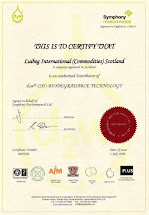More on Killer Plastic – The indigestability of plastic bags.
By Hugh Paxton
“In answer to the rather silly myth that has been promulgated that it isn’t worth using biodegradable materials because modern landfills are fully sealed, the very obvious point should be noted that most plastic bags aren’t ending up in sealed landfills!”
Seeing these hideous images of choked seabirds from Midway atoll in your article The Long Arm Of Plastic reminds me to put my mouth where my money is and talk about the merits of biodegradable plastic. The sad fact is that improper disposal of waste plastic is having a very deleterious effect on a lot of wildlife, it is truly an international problem of epic proportions.
Wouldn’t it be awful if the sea turtles which managed to survive the cataclysmic termination of the dinosaurs could be hastened to extinction by plastic bags? Yet that is exactly what is happening.
Many species of sea turtles that munch upon jelly fish for a living are cutting short their sweet lives by choking their alimentary tracts with plastic bags. Sadly, they can’t distinguish between a healthy coelenterate supper and the diaphanous floating billows of plastic bags.
Even if they mistake just 1 in a 1000 meals – the sheer quantity of plastic waste in our oceans coupled with its very slow decomposition, the turtles’ need for a high rate of consumption ( due to the low nutritional content of their jelly-fish prey) and their slow breeding rate means that the odds are stacked heavily against sea turtle survival.
Whether these bags were carelessly dumped or just plucked by the wind from trash cans, heaps, picnic bags or boats matters little to the turtles. What does matter, and this matters a lot, is the size of the jetsam and the amount of time it remains an environmental hazard after it has served its useful purpose to humanity.
Thankfully there is a solution; it is to replace conventional long-lived plastics with plastics that are programmed to biodegrade in about 6 months under normal conditions of careless disposal or on an open rubbish dump!
Symphony Environmental plc add proprietary granules to plastic in the manufacturing process that retain the strength of the plastic during its short span of useful service to mankind and then enable decomposition to set in from exposure to moisture and air when decomposition becomes the new priority.On their website Symphony claims:
“Our d2w® additive put into the plastic at the extrusion stage will make the finished product “oxo-biodegradable” so that it will degrade and disappear in a short timescale, leaving no fragments, no methane and no harmful residues.Degradability is not a disposal option – you can still re-use and recycle – it is low cost insurance against the accumulation of plastic waste in the environment.”
Brilliant.
Symphony franchises its proprietary biodegradable plastic technology internationally and I am happy to say that they are rapidly expanding their operations and now have customers in Europe, North, South and Central America, The Middle East, India and The Far East.
In answer to the rather silly myth that has been promulgated that it isn’t worth using biodegradable materials because modern landfills are fully sealed, the very obvious point should be noted that most plastic bags aren’t ending up in sealed landfills!
While I may not have enough shares in Symphony to make much of a financial difference to me, I know that every biodegradable plastic bag that replaces a non-biodegradable one is one less choking hazard for our Chelonian friends.
Sunday, 7 February 2010
Subscribe to:
Post Comments (Atom)



No comments:
Post a Comment